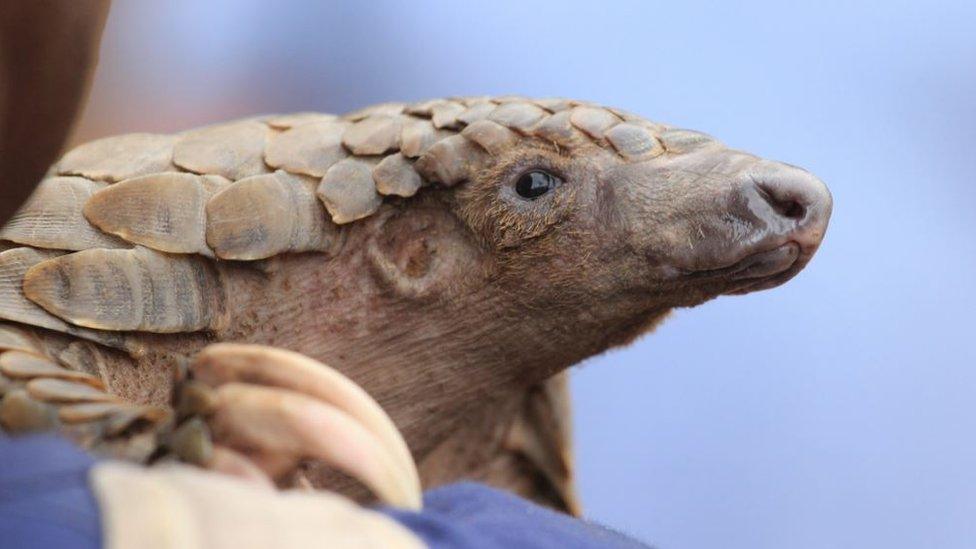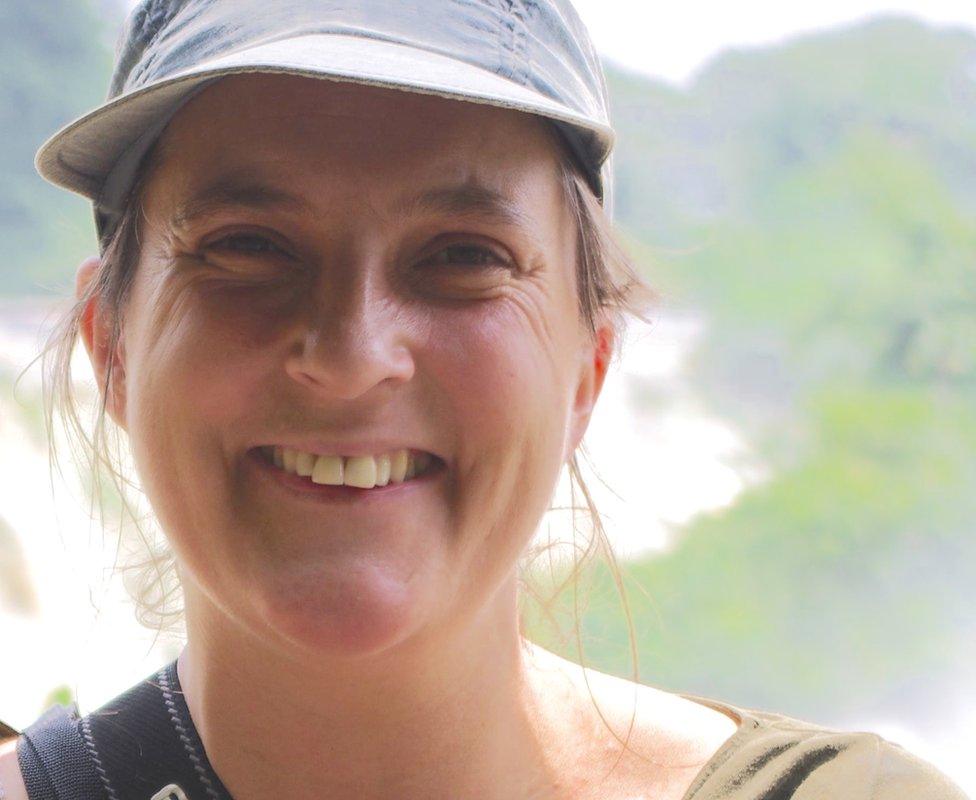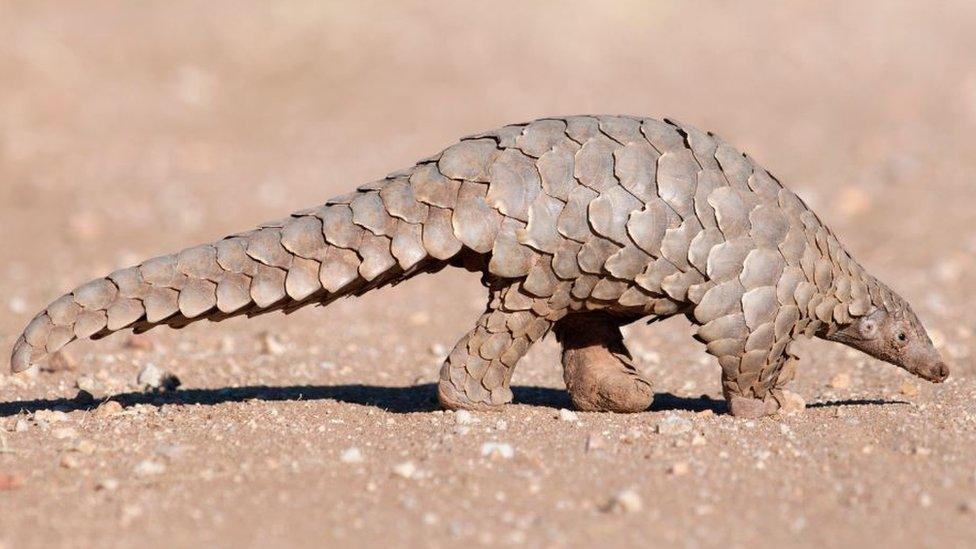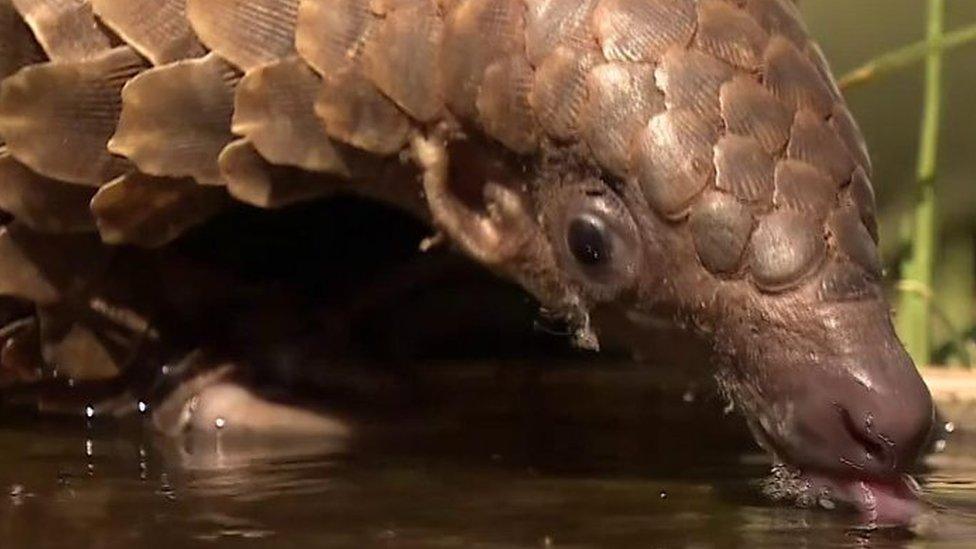Scots study uncovers trafficking routes for pangolin
- Published

The pangolin is being smuggled via ivory trade routes
Animal traffickers are taking advantage of remote ivory trade routes to smuggle one of the world's most endangered animals out of Central Africa, new research has found.
Pangolins are scaly, ant-eating mammals.
Their meat is considered a delicacy and their scales are deemed by some to have magical medicinal properties.
Stirling University led the first ever study into how criminals were sourcing the animals from African forests.
The researchers found pangolins were being transported illegally across remote forest borders in an attempt to avoid increased law enforcement.
The pangolin is the world's most trafficked mammal, and threatened with extinction.
Pangolin: The most trafficked mammal in the world
The new study was led by Dr Katharine Abernethy of Stirling University's faculty of natural sciences and also involved the University of Sussex, Gabonese researchers and other industry partners.
It found local hunters in Gabon were selling increasing numbers of the animals to Asian workers stationed on the continent for major logging, oil exploration and agro-industry projects.
The team also discovered that the price for giant pangolins had risen at more than 45 times the rate of inflation between 2002 and 2014.
The findings are published in the African Journal of Ecology on World Pangolin Day.
It is hoped they will help law enforcers tackle the increasing problem.

Dr Katharine Abernethy led the study into the trafficking of pangolins
Dr Abernethy said: "This is the first study of how illegally traded pangolins may be being sourced from African forests and it shows that the high value paid internationally for large giant pangolin scales is probably affecting their price, even in very remote villages.
"However, local subsistence hunters are probably not the primary suppliers - this is likely to be criminal hunting organisations, possibly those who are also trading in ivory in the region, as the demand markets are similar."
The new study focused on Gabon, in Central Africa, where domestic hunting and eating of certain species of pangolin is legal.
They found that the relative value of pangolins has increased significantly since 2002.
Illegally-traded pangolins were not detected by law enforcers controlling traditional meat trade chains, but found associated with ivory trading across forest borders.
The study concluded that the high international price of scales was driving up local costs, with hunters increasingly targeting pangolins to sell them on, rather than for home consumption.

What is a pangolin?

The pangolin is completely covered in scales
The gentle, solitary pangolin has a tongue as long as its body and curls into a ball when threatened. It is also the world's most trafficked mammal, and threatened with extinction.
It is the only mammal wholly covered in scales, and it curls itself into an impregnable ball when approached by predators.
It eats seven million ants and termites a year and has no teeth, so it stores stones in its stomach to grind up its food.
The reason many of us have never heard of pangolins is because they seldom survive in captivity. Only six zoos in the world - and only one in Europe, Leipzig - have any.
Roughly 100,000 pangolins a year are being snatched from the wild and sent to China and Vietnam.
In both those countries their meat is considered a delicacy, and their scales are deemed to have magical medicinal properties.
Already there are no pangolins left in great swathes of South East Asia, so Africa's pangolin populations are now being plundered. All eight species are threatened with extinction.
- Published26 September 2016

- Published5 February 2015
